Spanish
Our MFL expert teacher
Maria Hurtado, Teacher: Primary MFL (Modern Foreign Languages)
Our MFL expert is Spanish and she has been teaching languages for more than eight years across several schools in London, developing an outreach service for Modern Foreign Languages .
Our MfL subject intent
‘Learning a foreign language is a liberation from insularity and provides an opening to other cultures. A high-quality languages education should foster pupils’ curiosity and deepen their understanding of the world. The teaching should enable pupils to express their ideas and thoughts in another language and to understand and respond to its speakers, both in speech and in writing. It should also provide opportunities for them to communicate for practical purposes, learn new ways of thinking and read great literature in the original language. Language teaching should provide the foundation for learning further languages, equipping pupils to study and work in other countries.
’ (National Curriculum 2014 – Appendix A)
The benefit of learning a second language
'If you talk to a man in a language he understands, that goes to his head. If you talk to him in his own language that goes to his heart.'
Nelson Mandela
There are many reasons why learning MFL (Modern Foreign Languages) is important, but here we would highlight some of them:
-
Learning languages is like travelling; through languages children can discover many other cultures, customs and global history. Children are curious by nature and the learning of MFL keeps this wonderful curiosity awake.
-
The MFL knowledge would eventually translate into tolerance, kindness and will prepare your children mentally and emotionally to confront future travels and encounters.
-
Thinking in two languages makes you flexible and multitasking. It is proved that bilingual children’s are better at problem solving and subjects such as Maths and Science. This can be an invisible skill at the beginning, but very visible at the end of their school years.
-
To be able to communicate in different languages open a whole world of opportunities. For example, Spanish is spoken across 21 countries, which means that in the future, children will be able to apply to many more job opportunities, experiences and they will have access to endless cultural experiences.
-
European languages share endless connections; it is fascinating to learn aspects of your mother tongue while learning another languages. MFL helps us to better understand and appreciate our language and history.
At Blessed Sacrament Primary School, we believe that the learning of languages enhances children’s self-confidence and spontaneity and it also enables children to transfer into KS3, confidently and successfully.
To be able to communicate in a different language can boost children’s confidence, while in the future can open many opportunities such as studying, working, or travelling in other countries.
Articles and blog post about the importance of learning MFL (Modern Foreign Languages)
- https://www.britishcouncil.org/voices-magazine/why-uk-schools-need-foreign-languages-now
(2013 Report: https://www.britishcouncil.org/sites/default/files/languages-for-the-future-report-v3.pdf)
-https://www.theguardian.com/education/2019/jul/04/foreign-language-learning-more-vital-than-ever-in-post-brexit-world
-https://www.theguardian.com/teacher-network/teacher-blog/2013/mar/21/overhaul-modern-foreign-languages-teaching-british-schools
-https://www.teachwire.net/news/why-you-should-introduce-writing-early-in-mfl
-https://www.britishcouncil.org/voices-magazine/why-uk-schools-need-foreign-languages-now
Our MfL subject implementation
We teach Spanish across the whole school. The school uses an MFL specialist to support the teaching and learning of Spanish. MFL is taught across all classes, for three half terms in each of the classes, in a fortnightly basis.
The resources used during the lessons include a variety of techniques to encourage children in their engagement and learning of Spanish:
-
Games
-
Role-play
-
Action songs and rhymes
-
Reading and writing materials

